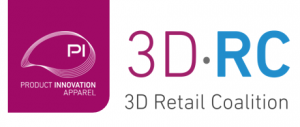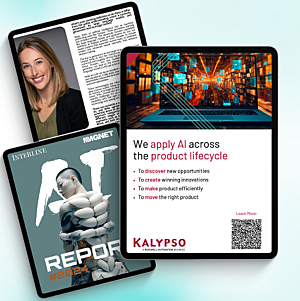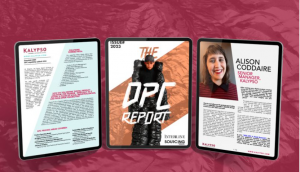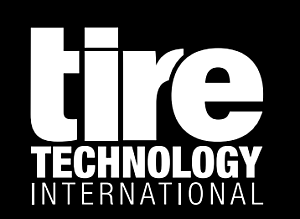
Chris Barnes discusses how effective maintenance starts with mastering the basics: planning, scheduling and execution. These core elements form the backbone of any advanced maintenance approach.

Rockwell Automation’s Jeffrey Miller discusses how digital thread technologies and industrial data integration can strengthen aviation, aerospace, and defense industrial supply chains, reducing costs and improving resilience through extended connectivity and predictive capabilities

The mandate is clear: manufacturers must become more efficient, resilient, and sustainable—all at once. This challenge collides with new opportunities as emerging technologies provide the means to transform operations, reduce waste, and gain visibility across the value chain that was not possible in the past. As a result, sustainability is becoming a priority in industrial operations and digital transformation agendas.

Leo Moran discusses how digital twins are transforming industries by streamlining design, testing and maintenance processes, reducing costs and improving productivity. By merging virtual and physical worlds, digital twins enable informed decision.
Our data science experts, Chelsea Barnes and William Rosengarten sat down for a conversation with Tech-Clarity's, Jim Brown to talk about how to achieve value from AI in manufacturing.

Jeff Miller discusses how to strengthen your supply chain by applying digital thread principles to your data.

The next generation of condition monitoring uses innovations in edge computing, analytics and machine learning for you to best leverage your asset’s data.

Kalypso's Venkat Gopikanth discusses why pharma organizations must ensure that new technology interface with the existing backbone and be of value to achieve defined objectives.

Rockwell Automation and Kalypso: A Rockwell Automation Business shared insights about our offerings and vision for the cement business.

Kalypso's Austin Locke discusses how seamless material and data flow is unlocking the next frontier of digital transformation and empowering autonomous operations.

State of the DPC Landscape: Is DPC ready for the deep end?

We were happy to be part of Alvanon's 3D Tech Fest again this year and to do a deep dive on our Digital Adoption Research.

Erin Shaffer is a Green Champion who co-leads the sustainability and energy management service line at Kalypso, a consulting firm acquired by Rockwell Automation. Erin shares her passion for sustainability, which was rooted in her upbringing and her experiences with social impact initiatives throughout college.

Kalypso, a Rockwell Automation business, is helping manufacturers solve a variety of problems with consulting, design and managed services for IoT solutions.

In this episode of The Interline Podcast, Sophia Lara, Digital Product Creation (DPC) and Transformation Lead at Kalypso and Ben Hanson, Editor-in-Chief at The Interline, discuss the results of our 2024 Digital Adoption Research.

Kumar Parekh, Global Principal for Mining and Metals, shares his insights in an interview with Australia's Mining Monthly on the '3 Diamond Problem' in mining. He emphasizes that instead of rushing into digitalization, miners should focus on mastering process optimization, predictive maintenance, and higher throughput. Get the first two right and the third should follow.

Michael Glessner and Aleksandar Boskovic discuss how connecting digital technologies into a digital thread provides an uninterrupted flow of information and helps create a faster, more resilient business.

Juliano de Goes Arantes outlines how AI is changing cement with predictive modeling in this Construction Week

Mithun Nagabhairava, senior manager of data science and AI, reveals how manufacturers can benefit from the latest advances in artificial intelligence and machine learning.

The Interline's first AI report – available to download for free – explores the transformative impact of artificial intelligence on fashion, through exclusive editorial, tech vendor profiles and interviews, and market analysis. Kalypso's point of view and SME interview is included.

Senior manager, Chris Barnes, joins a panel to discuss how asset management is a critical aspect for manufacturers, turning data into actionable information that can change operations.

Senior manager Mithun Nagabhairava explains the processes and steps involved in implementation projects.

Kalypsonian Stephen Birtsas shares the importance of organizations demonstrating ROI when implementing a digital thread strategy.

The future of supply chain planning requires digitization, automation, connectivity, and data-driven decision-making. Organizations that embrace these technologies create agile, transparent and efficient supply chains that are resilient to market changes and disruptions. Head to page 21 to read more.
The Interline talks to Alison Coddaire of Kalypso about why the next steps in the digital product creation journey should be customized to fit each brand’s strategic direction. Released in The Interline’s DPC Report 2023, this executive interview is one of a sixteen-part series that sees The Interline quiz executives from major DPC companies on the evolution of 3D and digital product creation tools and workflows, and ask their opinions on what the future holds for the the extended possibilities of digital assets.
Tech Clarity's, Jim Brown shares his key takeaways from the discussion with Kalypsonians, Stephen Birtsas and Leo Moran on the manufacturing digital twin in the CPG industry.

Kalypso is included in The Interline's second DPC Report, along with other key players in the industry. The report also includes a feature on our DPC expert Alison Coddaire.
Kalypsonians Chelsea Snyder and Esteban Garza expose the industry's current drivers and challenges based on our 2023 DPC in Retail Research.
Kalypso’s DPC Survey in Retail Research confirmed what we all know to be true… the DPC revolution is real, and it’s here. We as an industry, are beyond the introductory phase of digital product creation. Join this discussion with Sophia Lara on the practical challenges of implementation, value realization and rolling up our sleeves to address them.

Kalypso, a Rockwell Automation business, provides end-to-end solution advisory and implementation services for IoT projects related to smart connected products, operations and manufacturing.
Kalypsonians, Stephen Birtsas and Leo Moran join Tech-Clarity's, Jim Brown to have a conversation on the manufacturing digital twin in the CPG industry.

Purnima Krishnan, senior manager at Kalypso, a Rockwell Automation business, talks with Digital Engineering Magazine about how medical device providers can address various regulatory and market challenges with PLM.

With manufacturing so ahead of the rest of the world in AI awareness and experience, it would be easy to ignore the latest wave of news as hype, but Mithun Nagabhairava, senior manager of Rockwell Automation’s Kalypso business, says AI isn’t close to being done with revolutionizing manufacturing. The gains to date are just a start.

Whether a pharma manufacturer is upscaling an existing facility or planning to construct an entirely new greenfield plant, virtual commissioning using digital twins demonstrably helps realize numerous benefits. Sachin Misra discusses how digital twins can reduce commissioning time by 40%

Kalypso is recognized as one of the Top Pharma Analytics Solutions Providers by Pharma Tech Outlook. “Our key focus is on improving analytical competencies to make the shift from automation to autonomy,” says Sachin Misra, Principal at Kalypso.

Kalypsonian Stefanie Gunia discusses why organizational change management is crucial for achieving digital agility and resilience in today’s rapidly changing business landscape.

Kalypsonian Jordan Reynolds discusses how AI and autonomous systems capabilities will change the industrial automation landscape

Kalypsonian Tommy Mitchell discusses how companies can comply with regulations and attract investments, as well as improve their brand reputation, reduce operational costs and contribute to a more sustainable future

In an interview with ERJ, Jordan Reynolds of Rockwell/ Kalypso presented a four-point vision for an AI-enabled tire factory of the future

Kalypso’s Chad Markle talks about solving big problems for better human outcomes at LiveWorx 2023

Uwe Kueppers, manager at Kalypso, a Rockwell Automation company, stresses the importance of dismantling the automation pyramid.

For a decade now, TotalEnergies has been investing in robots and remote operation in particular with autonomous surveillance and inspection robots certified to the ATEX explosive atmospheres standard. “Because of the remote and often harsh environments in which oil and gas companies operate offshore, there is a strategic objective to minimize employee exposure on these platforms,” said Kalypsonian Matt Graves

Jordan Reynolds participated in this study on how artificial intelligence (AI) will impact workplaces is a central question for the future of work, with potentially significant implications for jobs, productivity, and worker well-being.

Achieving positive and enduring change can only be done with a thoughtful approach. Without the right technologies or mindset in place, CPG leaders are missing out on the most valuable insights across their enterprise and therefore missing out on areas for growth - Kalypsonian Jordan Reynolds

How might fashion's ambitions for DPC and all-round digitisation influence the way the industry develops its digital capabilities? This episode features a conversation between The Interline's Editor, Ben Hanson, and Kalypso's Alison Coddaire.

Kalypso's Chad Markle and First Solar's Jay Mehta discuss why the digital transformation of scalable and cost-effective solar manufacturing is key to enabling the anticipated growth in clean energy alternatives.

Senior manager, Stefanie Gunia, examines how businesses can use organizational change management (OCM) as a catalyst to successfully execute their digital transformation strategies and achieve digital resiliency and agility.

That anecdote elicited chuckles from the audience at this Automation Fair Chemical Industry Forum that gathered industry experts including Kalypso's Lance Rodenfels. The larger focus of the forum was to discuss the urgency with which chemical manufacturers need to update aging technology while also meeting environmental, social and governance (ESG) goals and adopting new digital technologies to thwart cyber-threats.
The Life Sciences Industry Forum at Automation Fair focused on digital-transformation imperatives in the industry. Moderator Daniel Matlis, president and founder of Axendia, was joined by panelist Sachin Mirsa, global pharmaceutical and biotech industry practice lead at Kalypso

Decision-making powered by AI can lead to incredible actionable insights. Mithun Nagabhairava, Manager – Data Science, Kalypso, explores how expanding the role of AI helps enable autonomous decision-making, as well as augment the remaining human decision processes with context and decision support mechanisms.